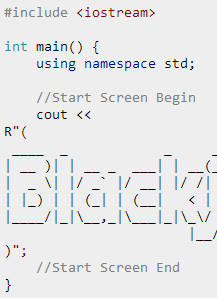C++ Papers for Issaquah - Concepts, Database and Evolution
This is the second part of my series about the papers for the next C++ committee meeting in Issaquah:
C++ Papers for Issaquah - Concepts, Database & Evolution
by Jens Weller
From the article:
This is the second part about the papers for the C++ committee meeting in February in Issaquah. This time featuring papers from the subgroups of concept, database and evolution. Again, most papers in this series aim for a standard after C++14, most important for C++14 will be the national comments on the new standard. Also there are no new papers from the core working group, only the active issues, defects report and closed issues report are on this mailing.

 Quick A: Use raw string literals! If your compiler doesn't have them yet, nag.
Quick A: Use raw string literals! If your compiler doesn't have them yet, nag. From new C++ user groups springing up across Europe and upcoming conferences, to the Boost refactoring and (of course) C++14, Jens Weller has a nice piece previewing some of the things to look forward to for C++ in 2014.
From new C++ user groups springing up across Europe and upcoming conferences, to the Boost refactoring and (of course) C++14, Jens Weller has a nice piece previewing some of the things to look forward to for C++ in 2014. The solution to the latest GotW problem is now available:
The solution to the latest GotW problem is now available:.jpg) In the current MSDN Magazine:
In the current MSDN Magazine: